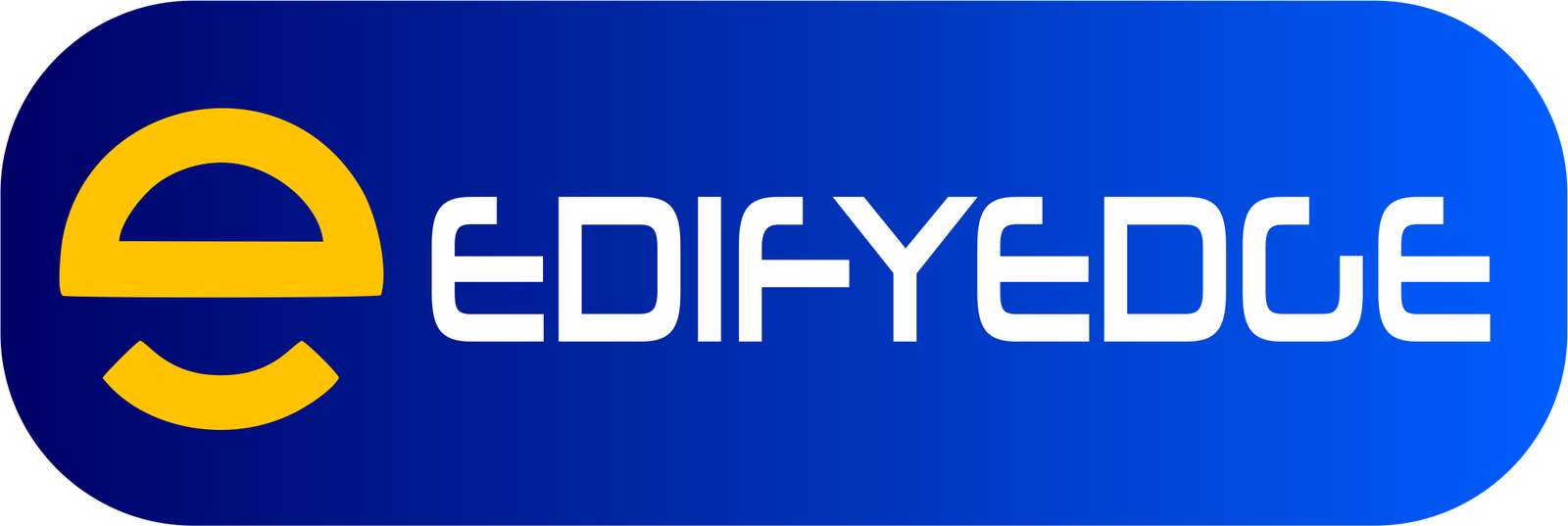What is a PayPal Business Loan?
A PayPal Business Loan is a type of financing offered by PayPal to eligible businesses that use their platform for payment processing. It’s designed to provide small businesses with access to working capital to help them manage cash flow, cover operational expenses, expand their operations, or take advantage of growth opportunities.
The PayPal Business Loan is tailored specifically for businesses that have an established PayPal account and a consistent stream of sales through the platform. It allows businesses to borrow a lump sum amount, which is then repaid through automatic deductions from their PayPal account’s daily sales revenue over a predetermined period.
By leveraging a business’s existing PayPal sales data, the loan application process is streamlined, and approval decisions are based on the company’s actual performance and revenue history rather than traditional credit scoring methods. This makes it an attractive option for businesses that may have difficulty securing financing through conventional lenders due to limited credit history or collateral.
Eligibility Criteria
To qualify for a PayPal Business Loan, businesses must meet certain requirements and criteria set by PayPal. These typically include:
-
Business Age and Revenue: PayPal generally requires businesses to have been operational for at least 9 months and have a minimum annual revenue of $42,000 or more. This helps ensure that the business is established and generating sufficient income to repay the loan.
-
PayPal Sales History: Businesses must have a history of processing sales through their PayPal account. PayPal looks at the volume and consistency of PayPal sales, as well as the length of time the business has been using PayPal.
-
Credit Score and History: PayPal evaluates the credit score and history of both the business and the business owner(s). A good credit score and a clean credit history increase the chances of loan approval.
-
Business Location: PayPal Business Loans are currently available to businesses operating in the United States, United Kingdom, Australia, and select other countries.
-
Industry and Business Type: Certain industries and business types may be excluded or have additional requirements due to risk factors or regulatory considerations.
-
No Recent Bankruptcies or Delinquencies: Businesses with recent bankruptcies, tax liens, or delinquencies on their credit report may be ineligible or face stricter requirements.
-
Minimum Time in Business: While the exact requirement may vary, PayPal typically requires businesses to have been in operation for at least a few months to demonstrate stability and viability.
It’s important to note that meeting the eligibility criteria does not guarantee loan approval, as PayPal also considers other factors such as the business’s overall financial health, cash flow, and projected growth potential.
Loan Amounts and Repayment Terms
PayPal Business Loans are available in amounts ranging from $5,000 to $500,000, with repayment terms of either 13 or 52 weeks. The interest rates for these loans can vary based on factors such as the loan amount, the repayment term, and the borrower’s creditworthiness.
Typically, the shorter 13-week loan term carries higher interest rates, while the longer 52-week term has lower rates. For example, a $10,000 loan with a 13-week repayment period might have an interest rate of around 15-20%, while the same loan amount with a 52-week term could have an interest rate closer to 10-15%.
It’s important to note that PayPal’s interest rates are fixed, meaning they won’t fluctuate during the repayment period. The total interest amount is calculated upfront and added to the loan principal, so borrowers know exactly how much they’ll need to repay in total.
PayPal also charges a one-time origination fee, typically ranging from 2-5% of the loan amount, which is deducted from the loan proceeds before disbursement. This fee covers the cost of processing and underwriting the loan.
Repayments are made through automatic weekly deductions from the borrower’s PayPal account, with the amount based on a percentage of their PayPal sales volume. This repayment structure is designed to align with the borrower’s cash flow, making it easier to manage the loan repayments as their business generates revenue.
Application Process
Applying for a PayPal Business Loan is a straightforward process that can be completed online in a few simple steps. Here’s what you need to do:
-
Create a PayPal Business Account: If you don’t already have one, you’ll need to create a PayPal Business account. This is separate from a personal PayPal account and is designed specifically for businesses.
-
Gather Required Documents: Before you begin the application, make sure you have the necessary documents on hand. This typically includes your business’s financial statements (such as profit and loss statements, balance sheets, and cash flow statements), bank statements, and tax returns for the past two years.
-
Complete the Online Application: Once you have your documents ready, you can start the online application process. PayPal will ask for basic information about your business, such as its legal name, address, industry, and annual revenue. You’ll also need to provide details about the loan amount you’re requesting and how you plan to use the funds. This may include proof of business ownership, licenses, or permits.
-
Provide Personal Information: As part of the application, you’ll also need to provide personal information about yourself and any other owners or principals involved in the business. This may include Social Security numbers, dates of birth, and addresses.
-
Review and Submit: Once you’ve completed all the necessary sections of the application and provided the required documentation, carefully review your information for accuracy. If everything looks correct, you can submit your application for review.
After submitting your application, PayPal will review your information and supporting documents. The approval process can take several business days, during which time PayPal may request additional information or clarification. If approved, you’ll receive the loan funds directly in your PayPal Business account, typically within a few days.
Approval and Funding
The approval process for a PayPal Business Loan is relatively straightforward. Once you submit your application, PayPal will review your business information, credit history, and financials. If approved, you can typically expect to receive the funds within a matter of days or up to a week.
During the approval stage, PayPal may request additional documentation or clarification regarding your business operations, revenues, or expenses. It’s essential to provide accurate and up-to-date information to ensure a smooth and timely approval process.
This fee covers the cost of processing and underwriting the loan. Additionally, there
Advantages of a PayPal Business Loan
One of the primary advantages of a PayPal Business Loan is the convenience and speed of the application and funding process. As an existing PayPal merchant, you can leverage your account history and sales data to streamline the loan application, eliminating the need for extensive documentation and paperwork. This means that during periods of lower sales, your repayment amount decreases, providing cash flow relief when you need it most. Conversely, when sales are strong, you can pay off the loan faster and reduce interest costs.
PayPal Business Loans also offer a straightforward and transparent fee structure. Unlike many lenders that charge hidden fees or complex interest rates, PayPal clearly communicates a single, fixed fee upfront. This transparency allows you to accurately calculate the total cost of the loan and plan your finances accordingly.
Additionally, obtaining a PayPal Business Loan does not require collateral or a personal guarantee, which can be a significant advantage for small businesses or entrepreneurs with limited assets. This feature minimizes the risk to your personal finances and provides greater peace of mind.
For businesses already integrated with the PayPal ecosystem, a PayPal Business Loan can be a seamless extension of their existing operations.
Overall, the advantages of a PayPal Business Loan include convenience, speed, flexibility, transparency, and minimal collateral requirements, making it an attractive option for small businesses seeking quick access to funding while maintaining cash flow stability.
Potential Drawbacks and Considerations
While a PayPal Business Loan can provide a convenient source of funding for small businesses, there are several potential drawbacks and considerations to be aware of:
Higher Interest Rates: PayPal Business Loans typically come with higher interest rates compared to traditional bank loans or other financing options. The rates can range from 15% to 30% or even higher, depending on various factors such as your business’s creditworthiness, revenue, and loan amount.
This can result in higher weekly or monthly payments, which may strain your cash flow if not managed carefully.
Automatic Repayment Deductions: PayPal automatically deducts a fixed percentage of your daily PayPal sales to repay the loan. While this can be convenient, it may not be suitable for businesses with irregular or seasonal sales patterns, as the deductions can potentially disrupt cash flow during slower periods.
The maximum loan amount is typically around $500,000, which may not be sufficient for larger financing needs or expansion projects.
Eligibility Requirements: To qualify for a PayPal Business Loan, your business must meet specific eligibility criteria, such as a minimum annual revenue, a certain number of years in operation, and a good credit score. This can exclude newer or smaller businesses from accessing this financing option.
Limited Transparency: Some borrowers have raised concerns about the lack of transparency regarding the total cost of the loan, including fees and the effective annual percentage rate (APR). It’s essential to carefully review and understand all the terms and conditions before accepting a PayPal Business Loan.
While a PayPal Business Loan can provide a quick and accessible financing solution, it’s crucial to carefully evaluate your business’s financial situation, cash flow projections, and the loan’s terms and conditions before deciding if it’s the right choice for your specific needs.
Alternatives to PayPal Business Loans
While PayPal Business Loans can be a convenient option for some small businesses, it’s essential to explore other financing alternatives to find the best fit for your specific needs. Here are some potential alternatives to consider:
Traditional Bank Loans: Many banks offer small business loans with competitive interest rates and flexible repayment terms. However, the application process can be more rigorous, and you may need to provide collateral or a strong credit history.
Small Business Administration (SBA) Loans: The SBA partners with lenders to provide government-backed loans with favorable terms, such as lower down payments and longer repayment periods.
Business Credit Cards: While not a loan per se, business credit cards can provide a revolving line of credit to cover short-term expenses or bridge cash flow gaps. Be cautious about high-interest rates and manage your credit responsibly.
Online Lenders and Peer-to-Peer Lending: Various online platforms and peer-to-peer lending networks offer alternative financing options for small businesses. These can be quicker and more accessible than traditional loans, but interest rates may be higher.
Crowdfunding: Platforms like Kickstarter or Indiegogo allow entrepreneurs to raise funds from a large pool of backers, often in exchange for rewards or equity. Crowdfunding can be a viable option for innovative products or services with strong public appeal.
Angel Investors or Venture Capital: For businesses with high growth potential, seeking investments from angel investors or venture capital firms can provide substantial funding in exchange for equity ownership.
Remember, each financing option comes with its own set of pros and cons, and the best choice will depend on your business’s specific circumstances, creditworthiness, and long-term goals. It’s advisable to carefully research and compare multiple options before making a decision.
Success Stories and Case Studies
Many businesses across various industries have successfully utilized PayPal Business Loans to fuel their growth and overcome financial challenges. Here are a few inspiring case studies:
Artisan Bakery Expansion
A small artisan bakery in Seattle was struggling to keep up with the increasing demand for their popular baked goods. With a PayPal Business Loan, they were able to secure the necessary funds to expand their kitchen, purchase additional equipment, and hire more staff. Within a year, they had doubled their production capacity and opened a second retail location, significantly increasing their revenue and profitability.
E-commerce Fashion Startup
An online fashion startup based in Los Angeles was facing cash flow issues due to the seasonal nature of their business. They secured a PayPal Business Loan to bridge the gap during slow periods and ensure they had enough inventory to meet demand during peak seasons. The flexible repayment terms allowed them to manage their cash flow effectively, and they were able to grow their business by over 30% year-over-year.
Restaurant Renovation
A popular family-owned Italian restaurant in Chicago needed to renovate their aging dining area to attract more customers and stay competitive. With a PayPal Business Loan, they were able to finance the renovations without depleting their working capital. The updated ambiance and improved customer experience led to a significant increase in foot traffic and revenue, allowing them to repay the loan comfortably.
These success stories demonstrate the versatility and effectiveness of PayPal Business Loans in helping businesses across various sectors overcome financial hurdles and achieve their growth objectives.
Tips for Responsible Borrowing
Here are some tips and best practices for responsible borrowing and managing loan repayments as a small business owner:
-
Assess Your Needs: Before applying for a loan, thoroughly evaluate your business’s financial situation and determine the exact amount of funding required. Avoid borrowing more than you need, as this will increase your repayment obligations and interest costs.
-
Create a Detailed Business Plan: Develop a comprehensive business plan that outlines how you intend to use the loan funds and how you will generate the revenue necessary to make timely repayments. This plan should include realistic projections, milestones, and contingency strategies.
-
Understand the Terms and Conditions: Carefully review and understand the loan’s terms and conditions, including the interest rate, repayment schedule, fees, and penalties for late or missed payments. Ensure that you can comfortably meet the repayment obligations before accepting the loan.
-
Maintain Accurate Financial Records: Implement a robust financial management system to track your income, expenses, and cash flow. This will help you monitor your ability to make loan payments and identify potential cash flow issues early on.
Build an Emergency Fund:
-
Establish an emergency fund or reserve to cover unexpected expenses or temporary cash flow shortfalls. This will help you avoid missing loan payments due to unforeseen circumstances.
-
Prioritize Loan Repayments: Make loan repayments a top priority in your business’s budget. Set up automatic payments or reminders to ensure that you never miss a payment due date.
-
Monitor Your Credit Score: Regularly check your business credit score and report. Maintaining a good credit score can help you secure better loan terms and interest rates in the future.
-
Communicate with Your Lender: If you anticipate difficulties in making a payment, proactively communicate with your lender. Many lenders are willing to work with borrowers to restructure repayment terms or provide temporary relief if notified in advance.
-
Explore Debt Consolidation Options: If you have multiple outstanding loans, consider consolidating them into a single loan with a lower interest rate or more favorable terms. This can simplify your repayment process and potentially reduce your overall debt burden.
-
Seek Professional Advice: If you are unsure about your ability to manage loan repayments or need assistance with financial planning, consider seeking advice from a qualified financial advisor or accountant.
Remember, responsible borrowing and effective loan management are essential for maintaining the financial health of your small business. By following these tips, you can minimize the risks associated with taking out a loan and increase your chances of successfully repaying it while growing your business.



